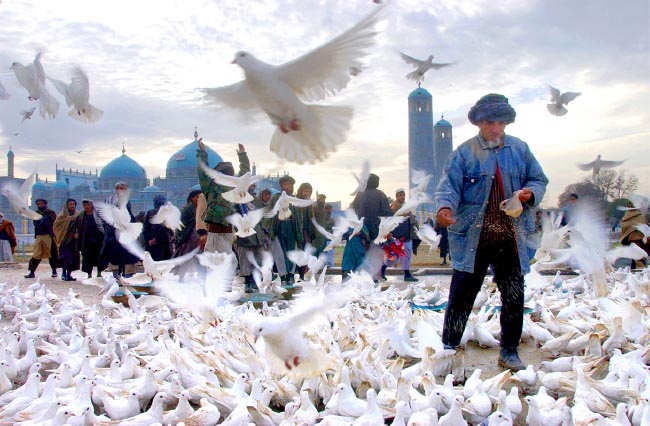Afghan nation left two deadly years behind. The graph of soldier and civilian casualties were very high in the two past years. Holding out against peace talks, the militant fighters, mainly the Taliban, intensified their attacks against Kabul government. With the start of New Year, there still seems no light at the end of the tunnel.
Notwithstanding Kabul’s frequent calls for peace talks, the Taliban seek to continue violence and bloodshed in the current year, too. Peace process has been a rocky road and there were many ups and downs within the past. But with a radical religious leader Mullah Haibatullah at the helm, peace process has come to an unbreakable stalemate.
Mullah Haibatullah, who nurtures a fundamental ideology, has never decided to sit around the negotiating table. Haibatullah, along with his deputies, is masterminding deadly attacks behind the scene. His only intention is to fight against Kabul government and shed blood indiscriminately. Although his men shed the blood of innocent civilians, especially women and children, he did not condemn those inhuman acts, which indicates that he is also involved in killing civilians.
The US drone targeted Mullah Akhtar Mansour with the aim of facilitating talks as US officials called him an obstacle before peace process. However, his death deteriorated the process as Haibatullah succeeded him. After all, Mansour’s death was an eye-opener for his successor who never present in the media. He is aware of his radical approach toward security situation in Afghanistan and fears to be doomed to Mansour’s fate.
Although years are elapsing, Haibatullah remains adamantly opposed to peace talks. Similar to the past, he is most likely to declare war under a new title in the coming spring and continue killing soldiers and civilians in the country. It is believed that holding talks with a political opponent is possible but not with an ideological discontent. For example, the head of Hezb-e-Islami Afghanistan (HIA) Gulbuddin Hekmatyar, who was a political opponent, reached an agreement with Kabul government and stopped shedding blood. Nonetheless, the Taliban did not and will not come to peace table.
Sustaining heavy casualties within more than a decade and half, Afghan people are not optimist about peace talks. According to public belief, one-sided struggle will not bear the desired result. The Taliban never hesitated to kill innocent civilians, including women and children. To put it succinctly, there is no lull in violence and bloodshed.
Although Afghanistan’s peace offering continues fruitlessly, Afghan High Peace Council (HPC) persists the Taliban to come to peace table. At the end of 2017, Kabul government offered the Taliban to open their political office in Kabul and hold talks without precondition from the Afghan government. But all this fell on the Taliban’s deaf ears.
Considering the aforementioned issues, 2018 is likely to be one of the deadly years before Afghan state and nation. On the one hand, the Taliban seek to continue their war and violence, but on the other hand, the self-styled Islamic State of Iraq and the Levant (ISIL) also pursues its sinister goal in Afghanistan.
To reduce violence and bloodshed, Afghan government and its international allies need to intensify their attacks against militant fighters, especially the Taliban and ISIL. Increasing the number of troops in Afghanistan, as it was suggested by the US President Donald Trump, is the right strategy. If the militants are not persuaded to hold talks, they have to be shot on the head. Indeed, persisting too much over peace process has gone beyond the tolerance of the public.
Secondly, Afghan government and its international allies need to reinforce their intelligence so as to target the right purpose. That is to say, the Taliban change their tactics of war almost every year, but Afghan government continues the same traditional method in combating terrorism, which will not come to fruition as ever before.
To reduce the graph of casualties in 2018, Afghan government must deal with the Taliban militarily since the Taliban hold out against talks.
Home » Opinion » No Hope for a Fruitful Peace Negotiation in 2018
No Hope for a Fruitful Peace Negotiation in 2018
| Hujjatullah Zia

